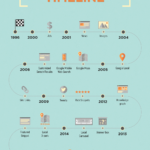“Cutting-edge,” “sleek,” “time-saving”? It used to be that clever marketers could have us pulling out our wallets with just a fancy adjective or a well-crafted slogan. But then the era of online reviews began, and we got smart. For a time.
One astounding survey showed that 90 percent of us say our buying decisions are influenced by other online reviews. But once businesses saw how consumers were basing decisions on positive reviews, fake online reviews became a thing. And while we generally still use online reviews to help guide our decisions, we now have to wonder about their veracity.
And it’s not just one business sector. This business of fake reviews is rampant everywhere. Books, hotels, restaurants. It seems every industry type has fallen prey to this way of getting more clients.
Real social media marketing firms stay away from this practice of sponsored reviews. By building true stories and engaging content. People will learn about your products and / or services naturally. And thus be far more likely to give positive reviews on their own.
If you are having issues with reviews for you own company, be wary of any marketing firm claiming they “Can Raise Your Yelp Reviews” or something akin to that. More than one company has been raided by the Feds over this practice.
What are consumers to do? How much should we trust the online reviews we read? Awareness, as they say, is half the battle won. The other half? Here are some questions to ask that will help you determine whether that review is a fake or the real deal:
- Is the review specific?
Too emotional? Too vague? Does it sound unnatural? Does it seem to be copying a brochure? Is it only one sentence long?
Fake reviews happen for the most part for one of two reasons: (1.) A business or an individual pays for good reviews in the hopes that there will be an upswing in business. (2.) A business or an individual places a damaging review on a competitor’s profile hoping there will be a downswing in their business.
In either case, a sign to watch out for is language that sounds biased but without any personal experience to back it up. For example, “It was great!” tells us no details at all. And “It was terrible!” goes in the pile of one-word 5-star reviews because it doesn’t help you make a well-advised buy.
Ignore all the vague reviews, and hone in on the ones that tell you something about an actual person’s experience with the product.
- Is the reviewer verified?
Say you find a review by someone and it checks all the boxes we mentioned in Point 1. It’s clear, concise, and detailed. In fact, it sounds a little too good to be true. It’s possible you stumbled upon a silver-tongued reviewer, giving an honest account of his experience. Just the same, you could also be reading a paid review. The FTC has endorsement guidelines to help combat this growing problem. But that doesn’t stop some unethical parties from trying to pull a fast one.
One way to see if that’s the case with the review you’re reading is to check out the reviewer’s profile. Some sites only allow real names with every review, which does a good job of cutting down the number of suspicious reviews. But for those that don’t, quite often you’ll be able to take a look at any other reviews made by a particular reviewer. If a reviewer only ever gives 5-stars, and you can see other strange patterns in the reviews that they give, then take their comment with a grain of salt.
- What do non-affiliated sites say?
If no industry is safe, where can we turn? Certain companies provide a way for consumers to read about businesses from vetted reviews. Another great source for relevant reviews that you can trust are niche blogs. Blogs that already have a reputation for being trustworthy and reliable. Quite often such blogs rate products on their own and without any kind of affiliation with the business or service.
And when all else fails, ask a friend or a family member to give you a recommendation. Knowing how businesses are connecting with consumers is an important aspect of being a savvy shopper.









